- Research
- Research Centers
- Journals
- Admission
- Introduction
- Programs
- Application
- Alumni & Giving
- Alumni Club
- Giving
Vocational Education as a Key Driver of Global Sustainable Development, a parallel session of the 2024 World Vocational and Technical Education Development Conference, took place in Tianjin on Nov 21.
Hosted by China’s Ministry of Education, the National Commission of China for UNESCO and the Tianjin Municipal People’s Government and organized by Beijing Foreign Studies University (BFSU), the event brought together more than 200 representatives from education departments, universities and research institutions from nearly 30 countries and regions.
The participants discussed collaborative strategies for advancing vocational education and shared governance models of various nations.
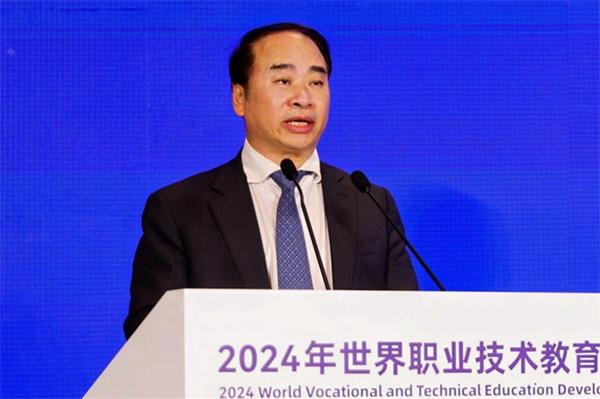
Wang Dinghua, secretary of the CPC BFSU committee, speaks at a parallel session of the 2024 World Vocational and Technical Education Development Conference. [Photo/bfsu.edu.cn]
Wang Dinghua, secretary of the CPC BFSU committee, presided over the opening ceremony and delivered a summary report. He provided a comprehensive overview of the role played by China’s vocational education in global governance and emphasized the consensus among nations on fostering openness in vocational education through high-quality, integrated development and sound, effective international governance frameworks.
Wang said the Chinese government places great importance on enhancing the capacity for vocational education's involvement in global governance.
Leveraging its expertise in languages and international exchange, BFSU aims to collaborate with global partners in building innovative models of mutual learning and cooperation to support the participation of China’s vocational education in global educational governance, according to Wang.
Also speaking at the ceremony were Bouréma Kansaye, Mali’s minister of higher education and scientific research; Loyda Barreda Rodríguez, general director of Nicaragua’s National Institute of Technology; Andrey Korneev, Russia’s deputy minister of education; Monica Musenero, Uganda’s minister of science, technology and innovation; Liao Pinhu, vice-chairman of Guangxi Zhuang autonomous region; and Shoichi Kondo, a member of Japan’s House of Representatives.
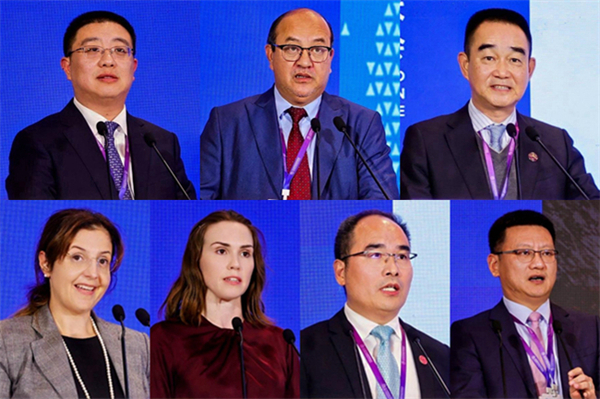
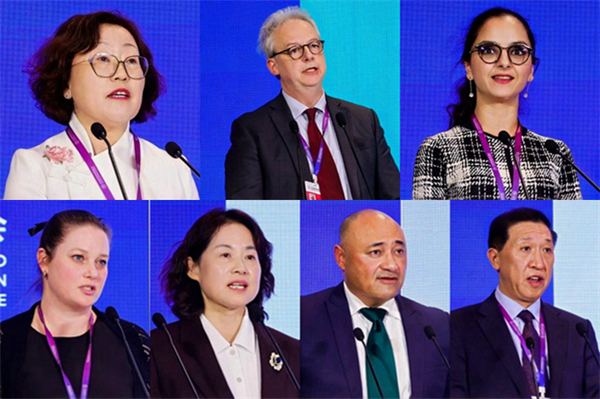
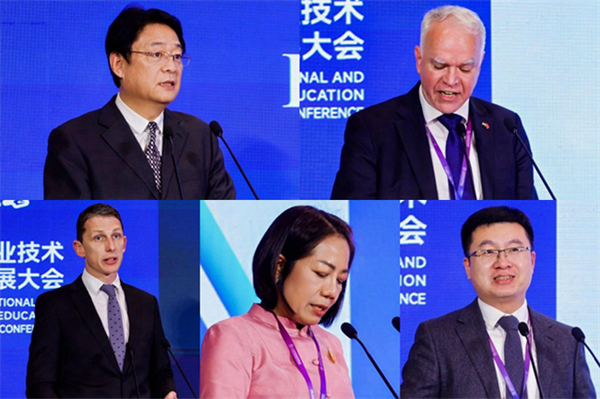
Officials, experts and scholars exchange views during the thematic discussions. [Photo/bfsu.edu.cn]
The session featured three in-depth thematic discussions — Concepts for Sustainable Development: Green Development and Social Equity; Mechanisms for Sustainable Development: Global Perspectives and International Cooperation; and Pathways for Sustainable Development: Technological Innovation and Industrial Upgrades.
Participants focused on cultivating talent in vocational education to drive high-quality economic development and green, low-carbon transformation and discussed training programs for technical and skilled talent with sustainable development literacy.
The discussions also explored the opportunities and challenges faced by institutions in international collaboration, shared practices and experiences in sustainable vocational education, probed the transformation of talent development amid significant global economic and industrial shifts and highlighted the effective docking of vocational education and emerging industrial needs in the age of digital intelligence.
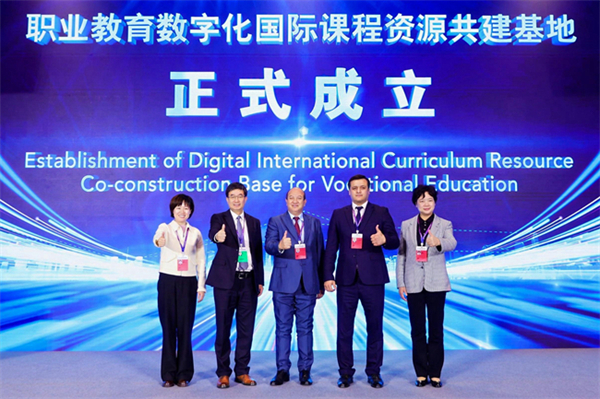
The parallel session announces the establishment of the Digital International Curriculum Resource Co-construction Base for Vocational Education. [Photo/bfsu.edu.cn]
A significant milestone of the event was the establishment of the Digital International Curriculum Resource Co-construction Base for Vocational Education. The base aims to foster collaboration with domestic and international institutions, utilizing cutting-edge digital technologies to bridge global exchanges in vocational education.
It will help develop internationally recognized professional and curriculum standards and teaching resources, promote international digital textbook development, enhance the training of technical and skilled talent and drive the high-quality growth of vocational education.